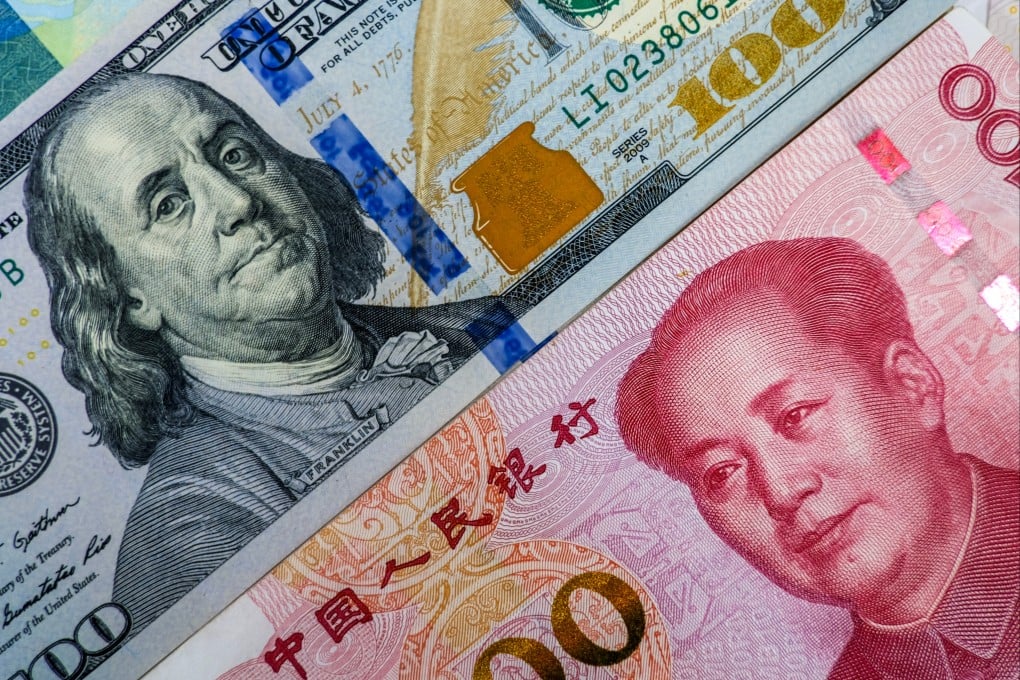Advertisement
Opinion | The US dollar super bubble may finally be popped – by the Israel-Gaza war
- The effects of war and inflation could send US financial markets into a tailspin, forcing China to completely ‘unpeg’ from the dollar – which could then collapse
Reading Time:4 minutes
Why you can trust SCMP
32

The escalating war in the Middle East could be the straw that breaks the back of the US dollar super bubble. As oil prices rise and the US budget deficit widens, bond yields will surge. This is likely to pop the stock and property bubbles in the US, then everywhere else.
Advertisement
China’s surging trade surplus and wage inflation will only add pressure to its unofficial dollar peg. Once that “peg” breaks, the dollar will collapse.
There is little doubt the US is experiencing a super bubble. Its asset prices are wildly overvalued, its debt on an unsustainable path – and political paralysis makes any meaningful policy adjustment unlikely. Its structural fiscal deficit already stands at nearly US$2 trillion.
As China’s commitment to keeping the yuan within a narrow trading band relative to the dollar – its “peg” – forms a protective shield against currency market fears of a dollar collapse, the bond market is bearing all the pressure. But the growing conflict in the Middle East could tip the balance.
Depending on the extent of disruptions to the oil flowing out of the Persian Gulf, Brent crude prices could shoot up. Inflation would rise and central banks, including the US Federal Reserve, will have to focus on cooling prices again, making it harder for them to rescue the debt market.
Advertisement
Meanwhile, the global money supply could increase by trillions of dollars. After September 11, the US spent an estimated US$6 trillion in the ensuing Middle Eastern wars – it may well repeat this. Such a war chest means more US borrowing: bond yields could surge to the double digits.

Advertisement
